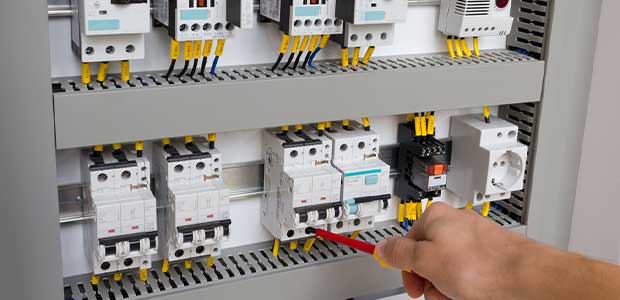
Comprehensive NFPA 70E Training for Qualified Workers
Proper training can enable employees to approach situations with safety in mind.
- By Bill Belongea
- Dec 01, 2022
If there was one positive takeaway from the COVID-19 pandemic, some would say it was businesses’ renewed commitment to safety and implementation of additional protocols that protect their employees. As facilities continue returning to normal operations, it’s imperative that organizations keep the momentum going and consider other areas in which they can strengthen their employee safety programs.
Electrical workers in particular face many hazards on the job, such as damaged tools and equipment, inadequate wiring and overloaded circuits, exposed electrical parts, damaged insulation and wet conditions and the most common OSHA electrical violation, improper grounding. However, few are more devastating than an arc flash, which is an electrical release of energy that can be hotter than the surface of the sun.
Though the nature of commercial industries and the type of equipment used can present dangerous situations, the reality is that many electrical injuries can be prevented if companies are committed to developing a strong electrical safety policy and training programs. To navigate today’s electrical safety requirements and build a proper electrical safety program, an organization must first ensure it has qualified workers that have received the proper in-depth training to complete electrical tasks safely, using the latest NFPA 70E standard as their guide.
Who is Considered a “Qualified Worker?”
The NFPA 70E standard defines who is considered a qualified worker so that there is no mistaking if an employee is equipped to perform specific electrical activities—and for good reason, considering the dangerous hazards that electrical tasks often entail. According to NFPA 70E 110.2(A)(1), “a qualified person shall be trained and knowledgeable in the construction and operation of equipment or a specific work method and be trained to identify and avoid the electrical hazards that might be present with respect to the equipment and work method.”
It’s important to note that with this definition, being deemed a qualified worker does not necessarily mean that a specific employee will be allowed to perform all the electrical tasks within the facility. NFPA 70E requires a risk assessment of all the electrical tasks that need to be completed. This assessment will determine which tasks qualified workers are able to perform and which must be outsourced to third parties.
This article originally appeared in the December 1, 2022 issue of Occupational Health & Safety.